Jade Miles needs to apologise. We’ve just begun our phone interview, and it’s a little noisy from her end.
“I’m on the tractor,” she says. “Sorry about that.”
This is extremely on brand for Miles, who is making a name for herself as the patron saint of “futuresteading”, a term she coined to describe the old-fashioned domestic skills she is keen to revive, both for her own self-sufficiency, and more broadly, to help the environment. A spot of tractor noise is literally all in a day’s work.
Miles is part of a growing wave of women keen to arm themselves with skills like farming, composting, making and mending and pickling and preserving. Just as the Covid-19 lockdown and its closure of retail stores and limited food supplies were a call to arms for amateur sourdough bakers, Miles and her cohort were inspired by impending climate change, like the 2020 summer bushfires, to become more self-sufficient and less reliant on material and consumer culture.
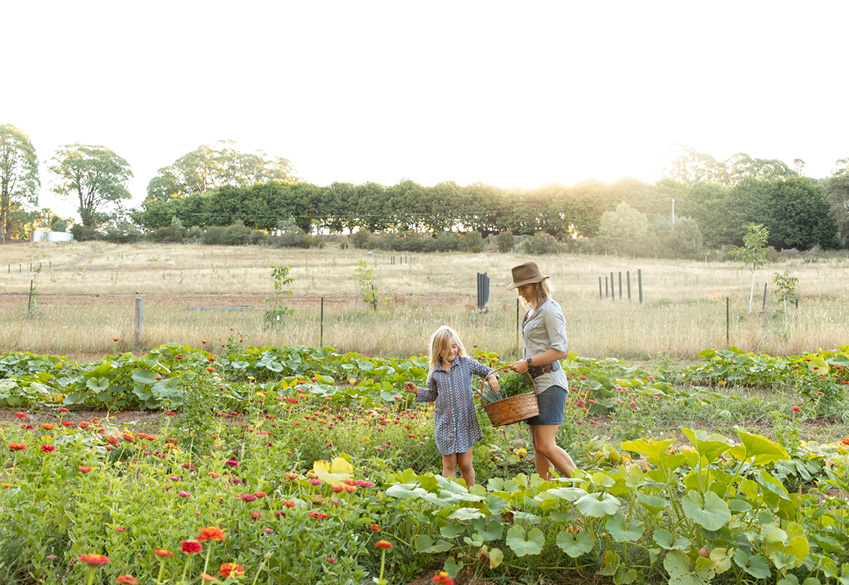
Miles lives on Black Barn Farm in rural Victoria with her husband, Charlie, and their children. The farm is regenerative and run on the principles of permaculture – no pesticides, a “closed loop” system whereby available fertiliser is utilised as much as possible, and an emphasis on using what one has, rather than looking for what is needed. Miles hosts workshops and presentations at the farm, and hosts a weekly podcast called Futuresteading, which is also the name of her book on the topic.
“I hear from so many people, ‘I really want to do what you do, but I live in an apartment,’” she explains. “Or, ‘I don’t have the skills.’ But at the heart of what we do here is simply live in a way that values tomorrow. That’s it. And there are many ways to do that.”
Miles was spurred to action by the 2020 bushfires. “My husband is part of the fire service, so he was out fighting for six, seven weeks,” she says. “And it was a frightening season. We’ve experienced fire events before, but never on that scale. I’d never considered my own mortality in that way.”
At the heart of what we do here is simply live in a way that values tomorrow
It pushed Miles, who already lived on the land, to think about “the reality that we are living with a finite amount of resources.”
“The decisions that we make on a day-to-day basis can change government policy,” she says. “The fires really taught us that, there was a galvanising force.” At an individual level, Miles says she felt compelled to live with less, rely on herself more and equip herself with the kinds of skills that might be necessary in a world further impacted by climate change.
Futuresteading is the heir – or maybe the distant cousin – of homesteading, the revival of domestic skills led by American influencers like Jill Winger (whose Instagram bio reads, “Old fashioned on purpose”). But while homesteading has its roots in conservative and even religious values, futuresteading feels more feminist: it is for women who want to contribute something broader and more valuable to the world.
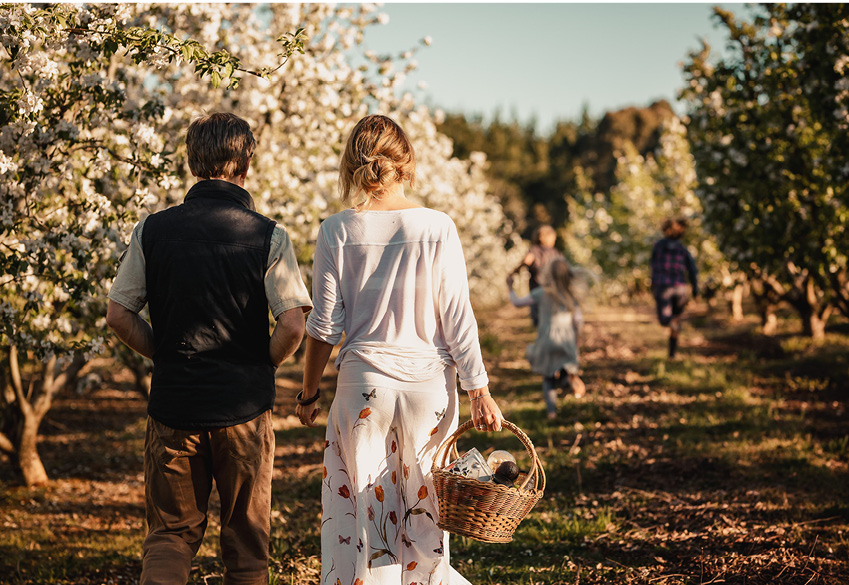
“Instead of being insular and looking after me and my little patch, futuresteading has a collaborative approach,” says social researcher Rebecca Huntley. “There is more of a political focus.” The downside, she says, of this personal activism around climate change is that it can be reductive.
“I worry that this reduces what is an enormous political, commercial and environmental problem to one that individuals must solve,” she says. “The real responsibility is in the hands of Chevron, Shell and so on.”
There is a gender skew here, too, that Huntley is wary of. “Women have enough on their plate without adding climate change to it,” she says. “But it also makes sense that women are more active in this space: women have always managed the home and have been key leaders in communities, whether or not they have children. Women drive financial decisions.”
I worry that this reduces what is an enormous political, commercial and environmental problem to one that individuals must solve
And there are, Huntley says, significant positives in the sense of community that futuresteading affords.
“Even if you’re only connecting over social media, there is a wonderful sense of connectivity,” she says. “And that is the key here. Futuresteading should be collaborative and focussed on building skills in a network.” Just as Covid-19 lockdowns have pushed us to connect more with our local communities, and support small business, futuresteading can encourage a shared knowledge economy. “In the same way that for generations we raised our children in networks and communities, we can futurestead, too. Someone has the compost, someone bakes the bread.”
And indeed, Miles is adamant that “anyone” can futurestead.
“No matter who you are, where you live, how much money you’ve got, how much time you’ve got, how many skills you’ve got… anyone can do this,” she insists. “Start small: herbs in a pot on the balcony. A compost bin. Mending shirts instead of buying new ones.” Even something as straightforward as eating seasonally, she says, can make a big difference.
“The easiest thing to do is just to start to see it,” says Miles. “Give yourself two blocks of five minutes in the day to be present and aware. Put your feet on the ground and stare at the clouds and breathe really deeply. Observe what’s around you, you know, either good or bad. Just notice it.”
A few days after our chat, I am putting my own compost out and I find myself doing just that. A worm wriggles its way into the mass of scraps, its body contracting and stretching slowly but methodically, with purpose but without frenzy. It captures my attention for far longer than it would have prior to my conversation with Miles. I do not have a tractor. But everyone can start somewhere.
Photo credits: Karen Webb. All images are taken from Futuresteading by Jade Miles, $31.75, Murdoch Books, out now




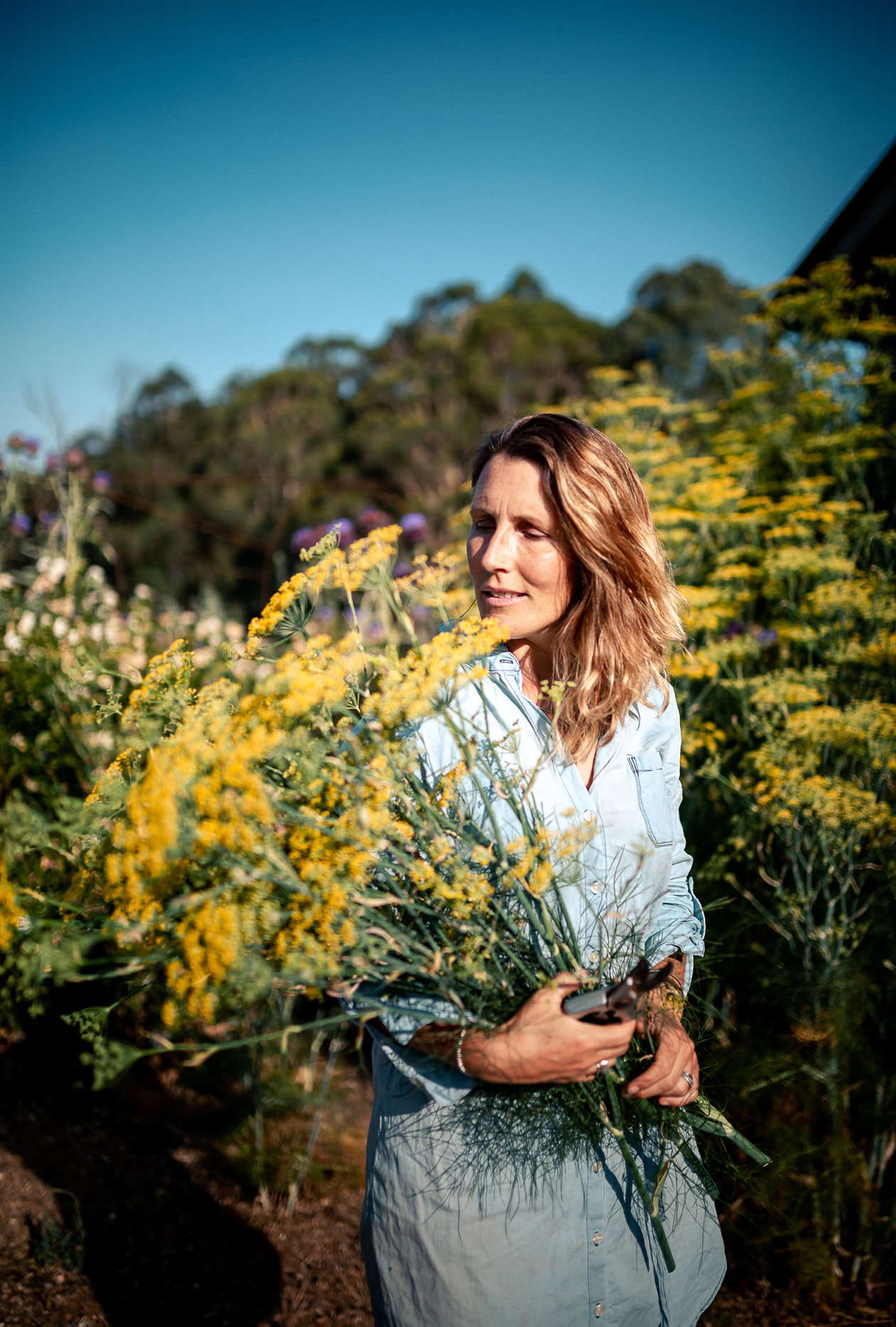
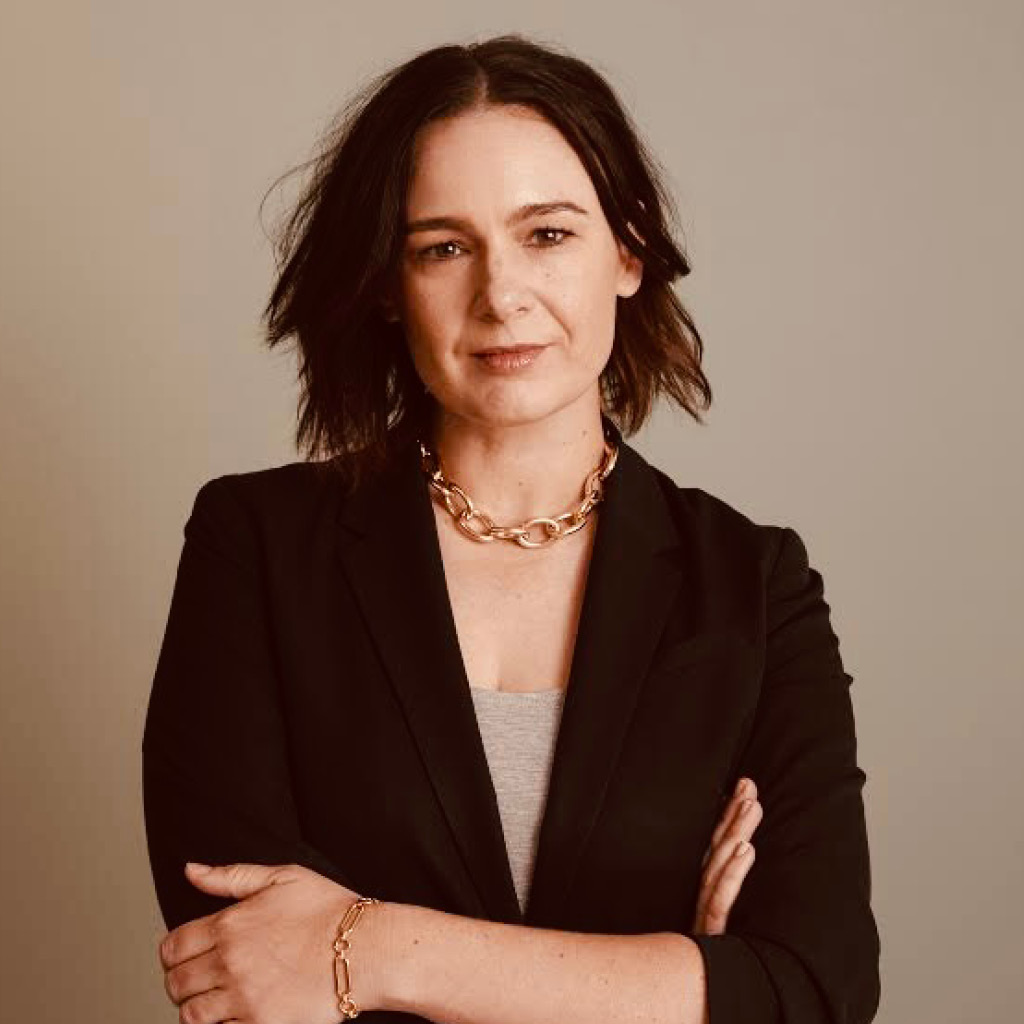

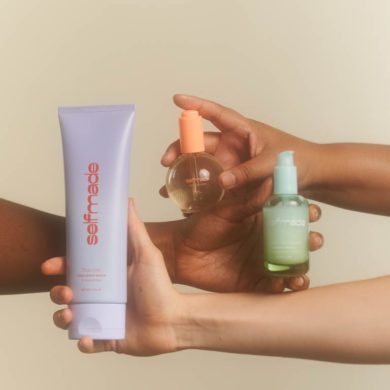
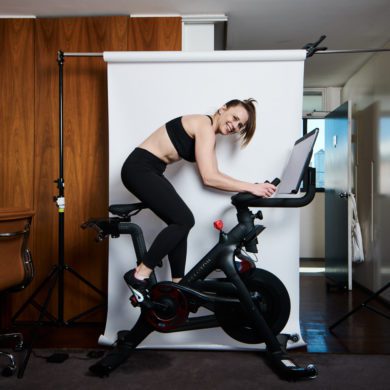
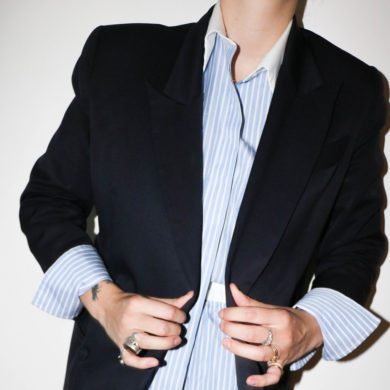



No Comments